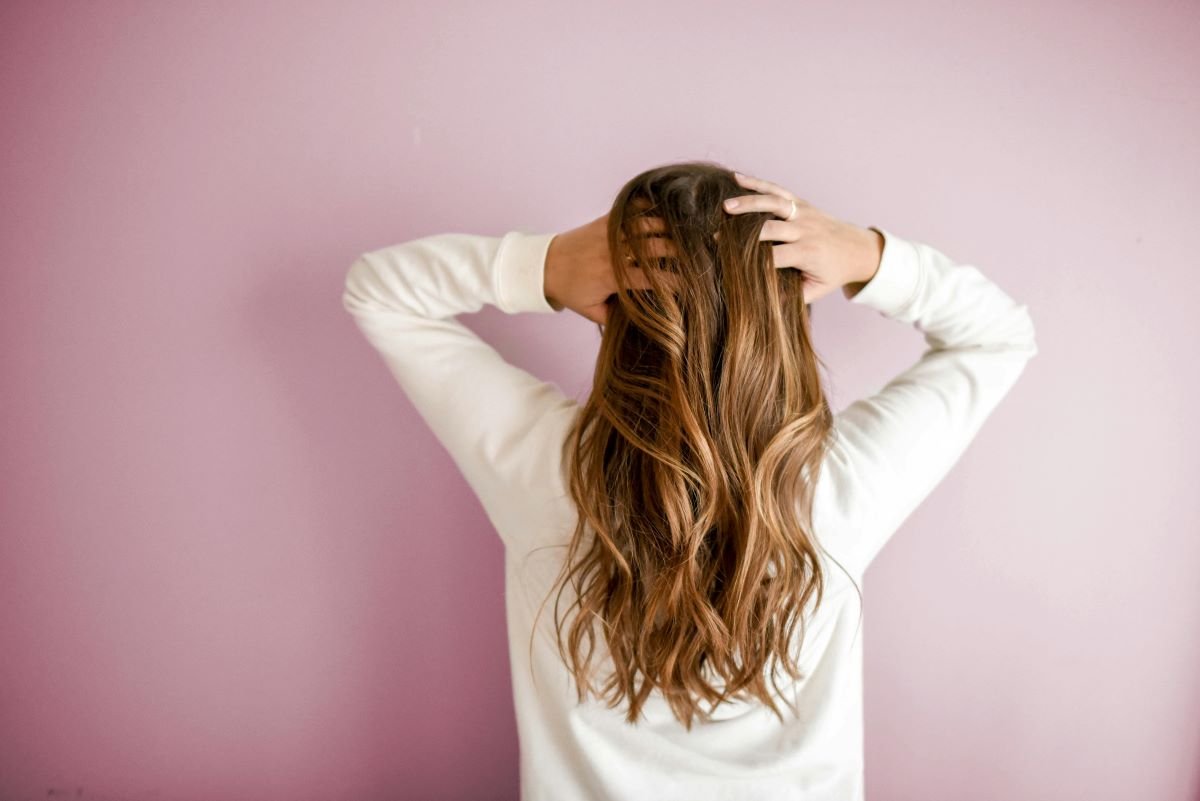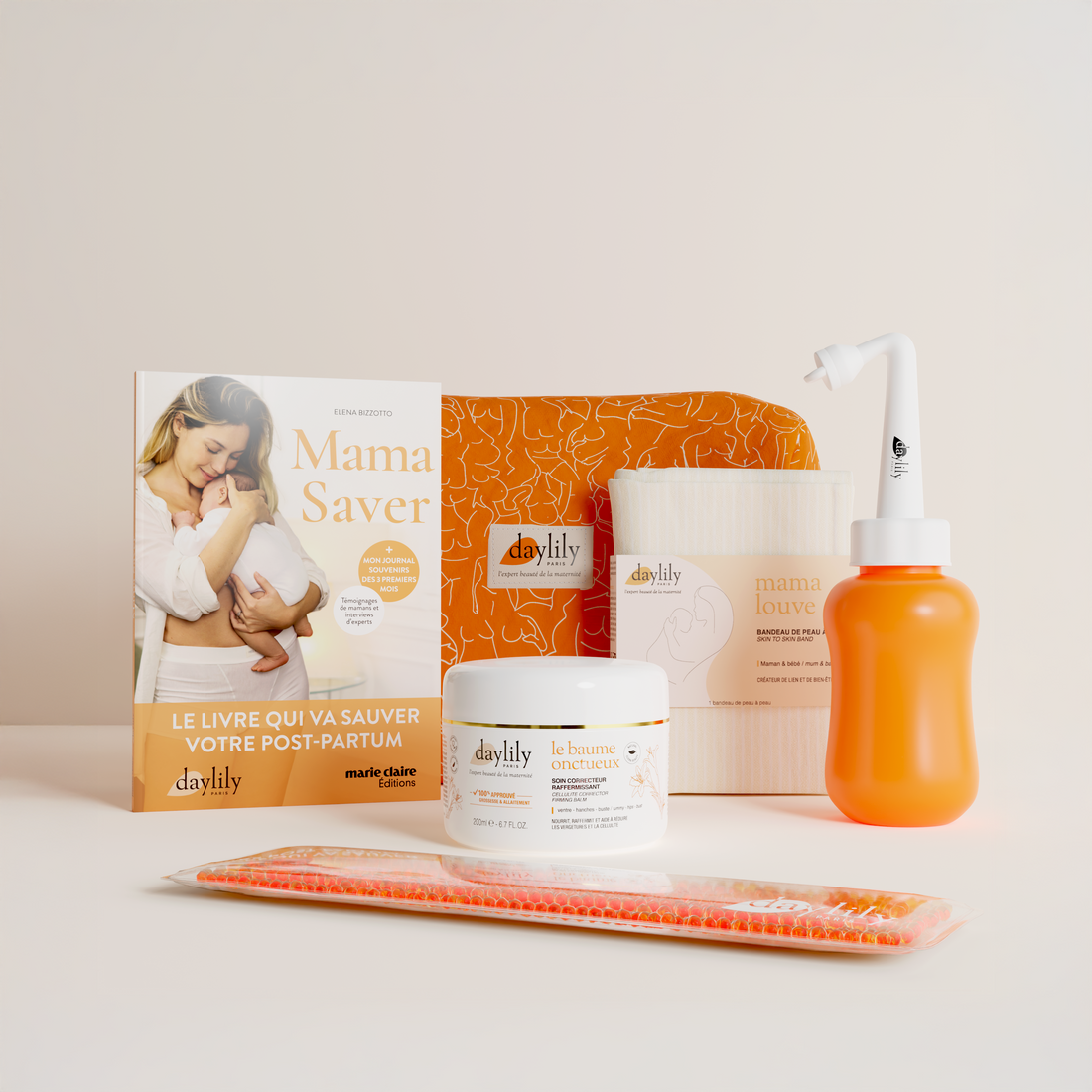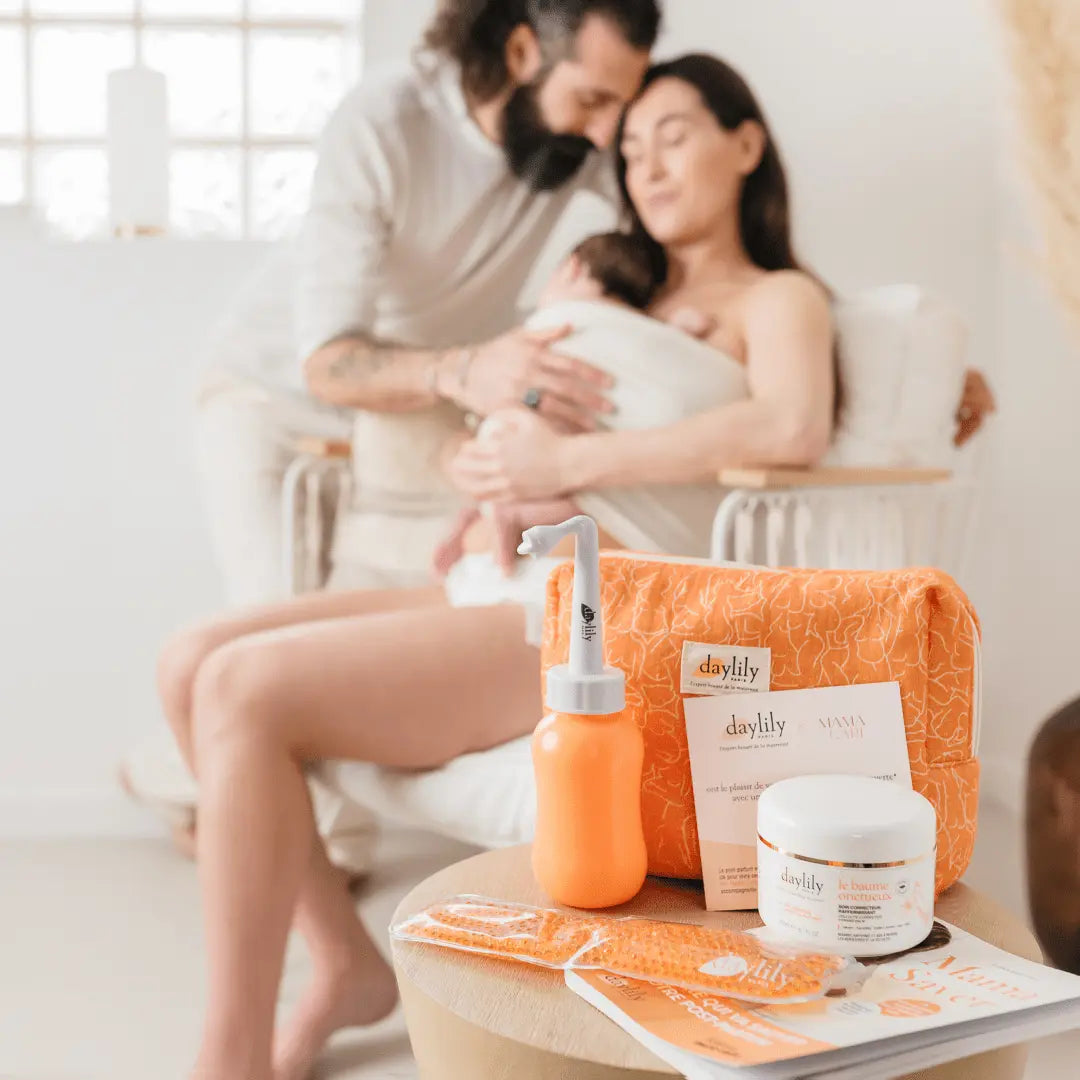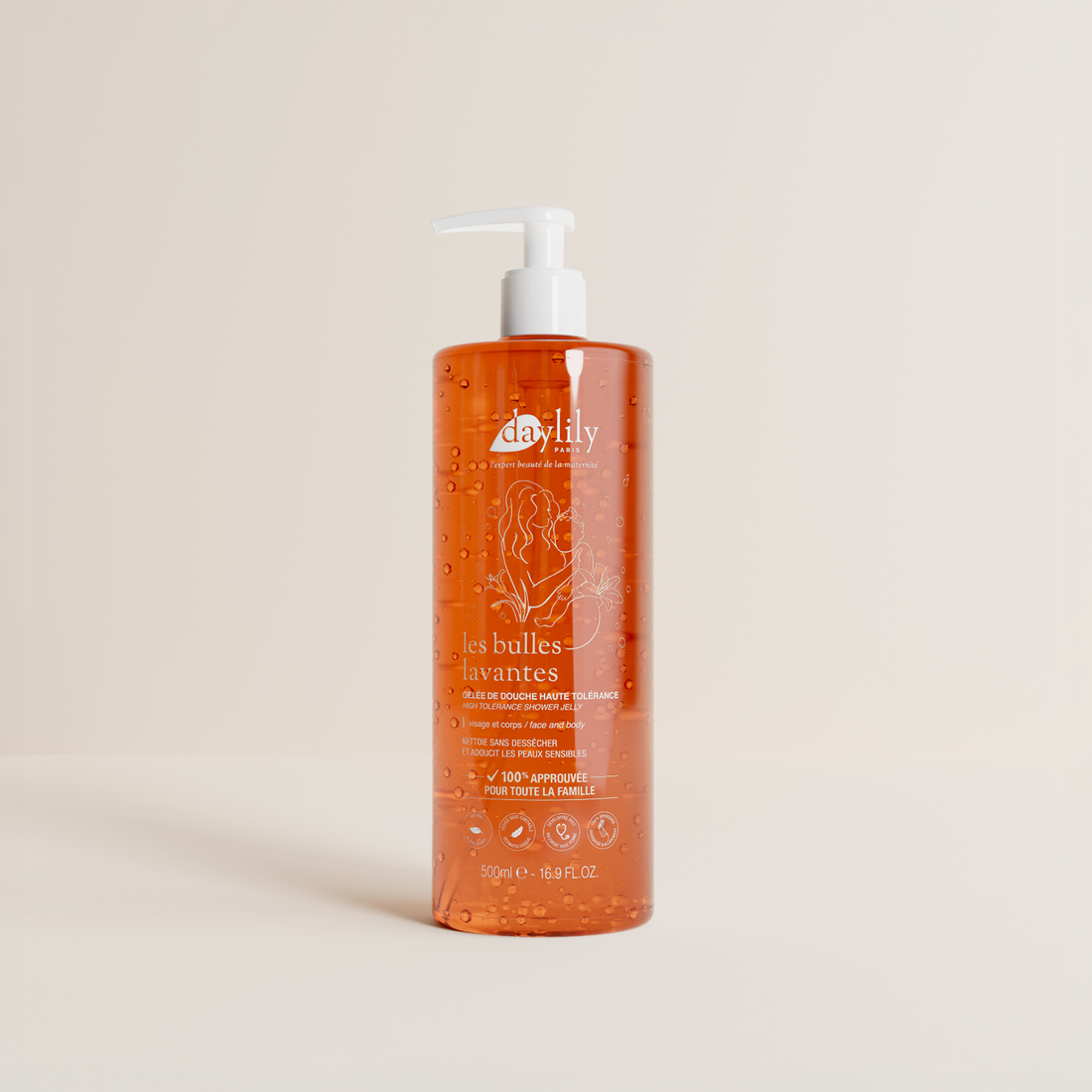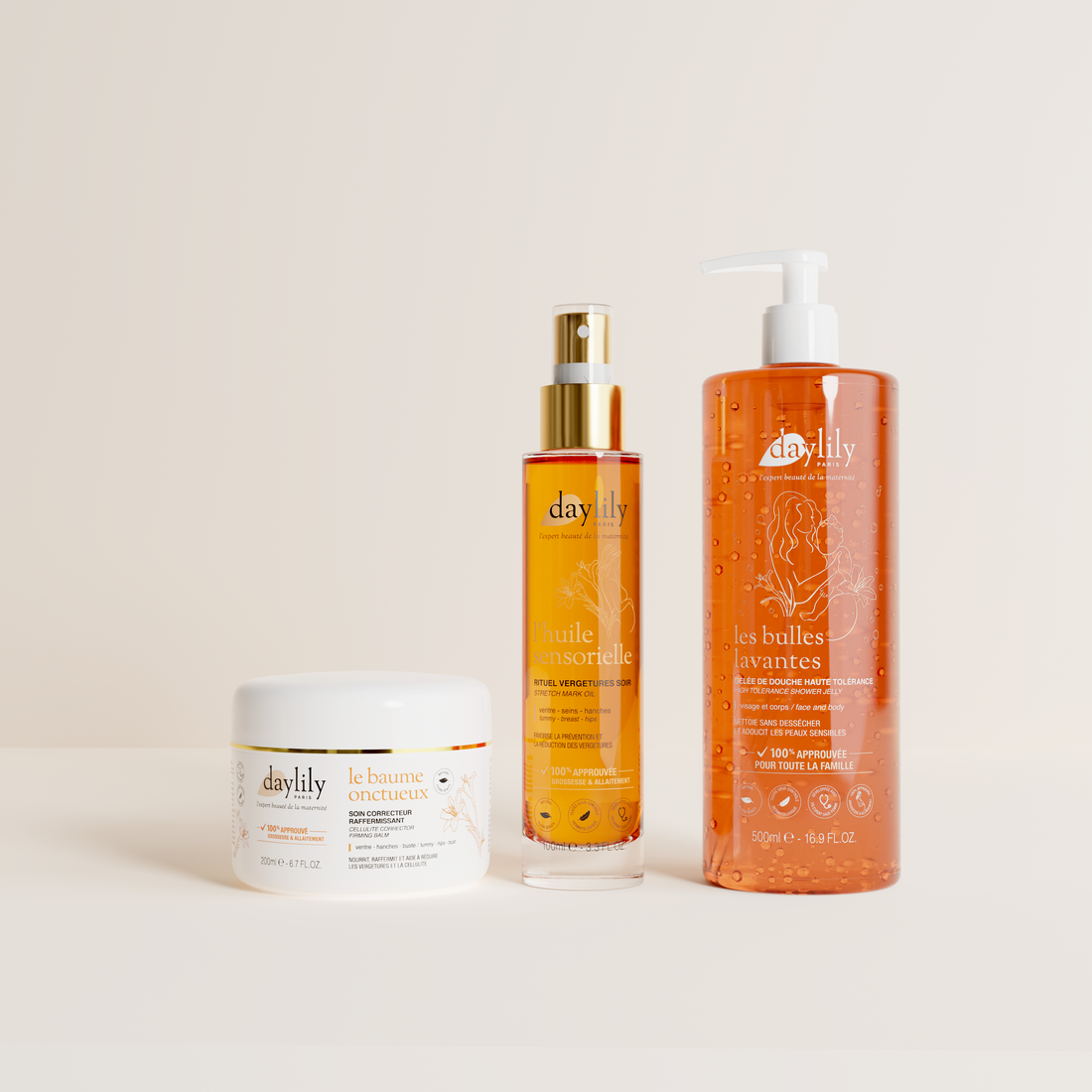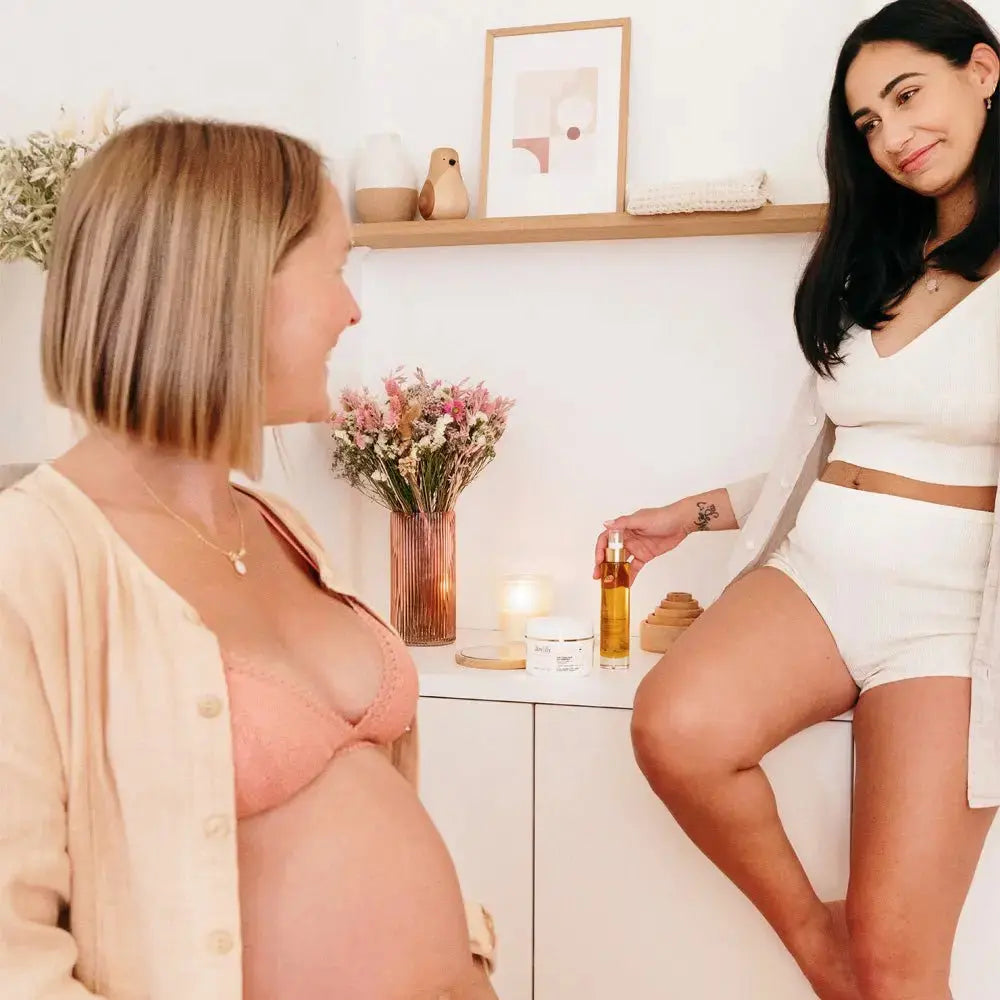Daylily Paris is a brand of clean, sensory and effective skincare products, made in France and 100% compatible with pregnancy and breastfeeding. We are also committed to sharing quality information for informed and uninhibited motherhood. 🧡
Where does postpartum hair loss come from?
Hormonal variations, main cause of hair loss
As is often the case, when we talk about the ills of pregnancy and postpartum, it is hormones that are to blame! When pregnant, estrogen is in full swing and works for beautiful hair. Your hair is stronger, more beautiful, and naturally, you lose it less than usual. Remember that we normally lose between 50 and 100 hairs every day. This natural process of hair loss is slowed by hormones.
After childbirth, hormonal changes are significant: estrogen levels decrease drastically. You will therefore lose the hair that you did not lose during your pregnancy, and the hair that you should lose naturally every day. Do the math: it can add up to a lot and it's always impressive, if not a little depressing, to collect a huge handful of hair on your brush and in the tub after shampooing.
Add to this hormonal upheaval fatigue, lack of sleep, a diet that is not always balanced and you combine all the factors to have thinning hair.
When does postpartum hair loss start?
Postpartum alopecia begins in young mothers a few months after giving birth: generally around the third month after the birth of the baby. It will last for several weeks, then fade naturally. It is generally the hair on the top of the head and on the temples that falls out first.
Hair loss is in the jargon called telogen effluvium. The telogen phase designates the last phase of the hair life cycle: it stops growing, dies and eventually falls out. Acute telogen effluvium therefore refers to excessive and temporary hair loss.
Did you know that you can act in advance to prevent hair loss? If you are pregnant and are currently finding out about the various difficulties that can arise postpartum, we tell you everything about postpartum in a dedicated article. And if hair loss has already started, you can also reduce it with simple actions and natural remedies.
Postpartum hair loss: what to do?
To avoid massive hair loss, you can, firstly, take care of your diet and favor foods rich in vitamins and iron, such as red meat, seafood, lentils, chickpeas, etc. And, To do this, you don't need to wait for alopecia to appear: you can anticipate it from the moment your baby is born.
An easy and practical solution to limit the risk of deficiencies, particularly iron deficiency, is to opt for food supplements. The most effective are those that contain sulfur amino acids. Cysteine and methionine are particularly important because they are involved in the production of keratin, the raw material for hair and nails. As our body cannot produce them on its own, a course of food supplements can therefore be a very good solution to boost hair. Good to know: a treatment must last at least 3 months, which corresponds to the life cycle of the hair, to be effective. If you are breastfeeding, remember to check that the products chosen are compatible with breastfeeding, a precaution that also applies to all postpartum care in your beauty routine.
Another option: brewer's yeast. Known to strengthen hair, slow down hair loss and stimulate growth, brewer's yeast is rich in B group vitamins, vitamin E, zinc and selenium. You will find it in tablets or flakes, which you can sprinkle on your salads, yogurts, etc. It has the advantage of being natural and completely compatible with breastfeeding, which it also tends to promote!
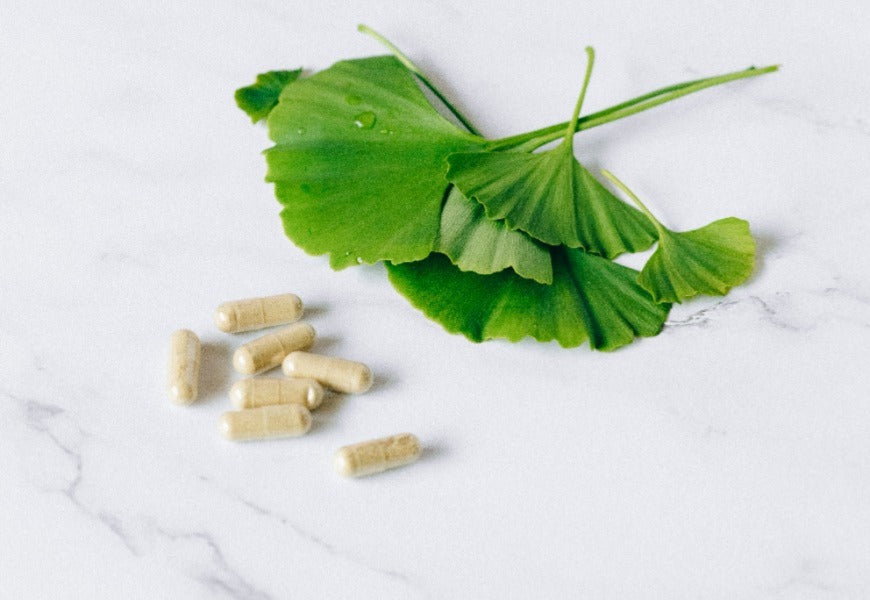
Scalp massage, to boost microcirculation
It's an easy technique to implement, and it costs nothing: practicing a scalp massage will promote hair growth by activating microcirculation. How to proceed ? Place the pads of your fingers on the scalp, and massage gently using back-and-forth movements and rotations, without lifting your fingers. For an effective massage, you really need to move the scalp, but without “rubbing” it!
Would you like a hair mask?
Another very effective and 100% natural solution: castor oil, recommended in the event of hair loss. You can combine it with another vegetable oil, preferably organic, such as olive or nigella oil (the latter should be avoided if breastfeeding). Apply this mixture to the scalp by massaging, and on the lengths: it will stimulate blood circulation and nourish the ends at the same time. Leave the mask on for at least 20 minutes under a warm towel, you can even keep it on overnight to maximize results. The operation should be repeated once or twice a week throughout the period of hair loss. Castor oil being quite thick, you will generally need two shampoos to completely eliminate it.
What if the fall continues?
If the loss continues beyond three months or if the quantity of hair lost seems abnormal to you, it is best to consult your general practitioner or a dermatologist who will be able to prescribe a complete blood test as well as a treatment adapted to your situation.

